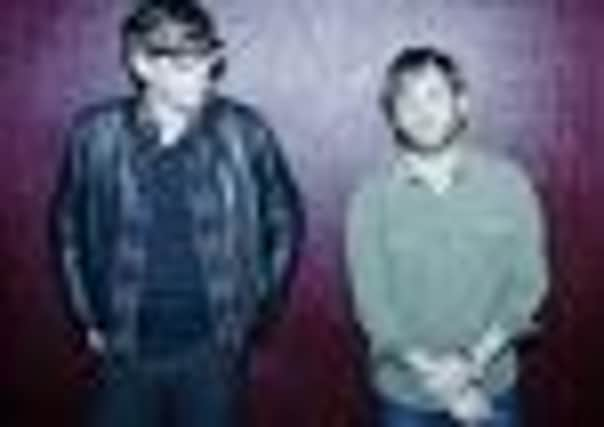Corn Exchange opens doors for The Black Keys


The two-man blues-rock group’s slow-build to stardom picked up momentum after sixth album Brothers in 2010, but there’s no doubt that it’s their newbie that’s fired them firmly into the big league.
So how do the first artists on the cover of Rolling Stone in 2012 feel about their long overdue commercial success?
Advertisement
Hide AdAdvertisement
Hide Ad“It’s a weird thing to happen ten years into your career,” says drummer Paul Carney, understating things somewhat. “It’s been so gradual that you don’t notice it.
“One day you look out and the audience consists of 65,000 people. It’s like looking in the mirror and one day you realise you’ve gone grey.”
Ohio-born Carney, who formed The Black Keys in 2001 with vocalist/guitarist Dan Auerbach, acknowledges that it’s taken them a long time to get where they are, but they’re really enjoying their success. “It’s pretty cool to be in your early 30s making music with your best friend,” he says. “We’ve taken the long road to get where we are.
“We’ve experienced everything from driving a thousand miles to play for no one to winning Grammys.”
On Saturday, the band play their biggest ever Edinburgh gig at the Corn Exchange, and Auerbach is promising a blistering live show. “We don’t talk before we play,” he says. “We don’t practice before we record, we just fly by the seat of our pants.
“I think where this [El Camino] is going to shine for me is playing the songs live. This record is more straight ahead rock and roll - raw, driving and back to basics.”
The back-to-basics approach was forced upon them after the unexpected success of Brothers.
Advertisement
Hide AdAdvertisement
Hide Ad“It wasn’t that we didn’t want to be successful, but after putting out records for so long, we assumed that we found our niche and were staying in it,” says Carney. “I was a bit stressed having to process the idea of more people paying attention to the band.
“After that happens, you can take a few different routes,” he continues. “You can make a difficult, eccentric, bizarre indie album if you are worried about maintaining cred, or you can make the same album you made before if you’re worried about alienating your audience - or you can just try to make a record that you think people will like and that you like, too. We owe it to our fans to make something that we’re really proud of.”
The Black Keys have now sold more than two million albums worldwide, but they never set out to be massive. “Rock and roll is dying because people became OK with Nickelback being the biggest band in the world,” says Carney. “So they became OK with the idea that the biggest rock band in the world is always going to be s***.
“Therefore,” he continues, “you should never try to be the biggest rock band in the world. F*** that!
“Rock and roll is the music I feel the most passionate about, and I don’t like to see it f****** ruined and spoon-fed down our throats in this watered-down, post-grunge crap, horrendous s***.”
But it’s not just Nickelback who The Black Keys can’t stomach - they resent those scenester indie groups from New York City, with their “trust funds” and “cool clothes”.
“There’s this weird thing that happened with being a successful band, and it has to do with rich, private-college kids who rule the indie rock world - kids who never really have to worry about anything, because they always have some sort of backup plan that they can safely fall into,” says Auerbach.
Advertisement
Hide AdAdvertisement
Hide Ad“We come from middle-class families. We’re both college dropouts. Driving around the country, paying for everything ourselves - this is the back-up plan. The only plan, really.”
The Black Keys, Corn Exchange, New Market Road, Saturday, 7pm, £21, 0131-558 7604